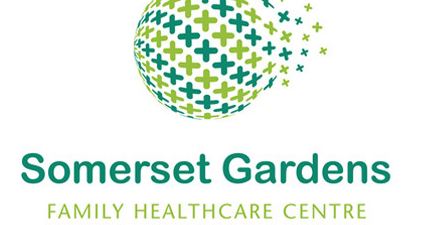Respiratory Syncytial Virus (RSV)
Respiratory syncytial virus (RSV) is a common cause of coughs and colds. While most RSV infections resolve on their own, they can be severe for infants and the elderly.
Who’s at Risk from RSV
At-risk groups for RSV include:
- Infants under 6 months old
- Young children born prematurely
- Individuals over 75 years old
- Those with weakened immune systems or chronic lung or heart conditions
- Tobacco smokers and infants exposed to tobacco smoke
In infants, RSV often leads to bronchiolitis, a chest infection that can cause breathing difficulties and may require hospital treatment. It can also result in serious lung infections, like pneumonia, in infants and older adults.
How to Avoid Catching and Spreading RSV
To prevent RSV transmission:
- Regularly wash or sanitize toys and clean surfaces
- Avoid touching your face with unclean hands
- Dispose of tissues immediately after use
- Keep newborns, especially those with health conditions or born prematurely, away from people with colds or flu
RSV Vaccination
The RSV vaccine is recommended for:
- Pregnant women from 28 weeks onwards to protect the newborn in the initial months post-birth
- Those aged between 75 and 79 years old
The vaccine helps mitigate the risk of severe RSV complications like pneumonia and bronchiolitis. Individuals aged 75 to 79 will be contacted by their GP surgery for vaccination arrangements. Pregnant women who are 28 weeks or more into their pregnancy should consult their maternity service or GP surgery regarding vaccination.
Injection for Children at Risk of Serious Infections
Children at high risk of serious RSV infections may receive an antibody injection each winter to lessen the severity of bronchiolitis. This is typically administered in hospital children’s clinics.
Symptoms of an RSV Infection
RSV infection symptoms often emerge a few days post-infection, with most individuals experiencing cold-like symptoms, including:
- Runny or blocked nose
- Cough
- Sneezing
- Fatigue
- Fever, indicated by increased back or chest heat, sweating, and chills
Babies may show irritability and reduced feeding. More severe infections, like pneumonia or bronchiolitis, can lead to:
- Worsening cough
- Breathlessness
- Rapid or irregular breathing
- Feeding difficulties or reduced appetite in babies
- Wheezing
- Confusion in the elderly
Note
Cold-like symptoms are prevalent in infants and children and typically resolve within a few days. However, seek medical attention if there are concerns about a child’s severe illness. Seek urgent medical advice or contact NHS 111 if:
- Your child’s health is deteriorating
- They are eating or drinking significantly less than usual
- They have not had a wet nappy for over 12 hours or shown other signs of dehydration
- They are unusually hot to the touch on their back or chest, sweating, and shivering
- If your baby is under three months old with a temperature of 38°C or above, or over three months old with a temperature of 39°C or higher
- A body temperature below 36°C in anyone aged 5 years or older
- Extreme fatigue or irritability in your child
- Cold symptoms occurring with a chronic health condition or weakened immune system, for example, during chemotherapy
- Increased difficulty in breathing than what is normally experienced
To check symptoms online, visit 111 online for individuals aged 5 and above, or call 111 for children under 5.
Information on Taking a Temperature
Use a digital thermometer to determine if you or your child has a fever. For guidance on this process, refer to:
- High temperature in children
- High temperature in adults
If a thermometer is unavailable, check for symptoms like an unusually hot back or chest, sweatiness, and chills.
Immediate Action Required
Call 999 if:
- Your child is having difficulty breathing, such as grunting noises, long pauses in their breathing, or their tummy sucking under their ribs.
- You have severe difficulty breathing, like gasping, choking, or being unable to speak.
- You or your child is floppy and will not wake up or stay awake.
- You or your child’s lips or skin are turning very pale, blue, or grey. On brown or black skin, this may be easier to see on the palms of the hands.
- Your child is under 5 years old and has a temperature below 36°C.
As a parent, trust your instincts if your child seems seriously unwell.
Information:
- Do not drive to Accident & Emergency (A&E) if you feel unwell.
- The operator at 999 will provide guidance on what actions to take.
Treatment for RSV Infections
Treatment for RSV infections primarily involves supportive care since there is no specific treatment for the virus itself. Most individuals recover within one to two weeks, and home care is usually adequate. However, severe infections in children and adults may necessitate hospitalization. In these instances, treatment can include the administration of fluids to prevent dehydration and oxygen therapy to aid in breathing.
Things You Can Do to Ease Symptoms of an RSV Infection
Do:
- Take paracetamol or ibuprofen if you’re experiencing a high temperature and discomfort.
- Administer children’s paracetamol or ibuprofen to your child if they have a high temperature and are uncomfortable, ensuring you check the leaflet for suitability.
- Consider saline nose drops from a pharmacy to alleviate a blocked nose for you or your child.
- Increase fluid intake; for babies, offer smaller, more frequent feeds, and for older children, provide additional water or diluted fruit juice.
Don’t:
- Never give aspirin to children under 16 years of age.
- Avoid smoking near your child; exposure to cigarette smoke increases the risk of severe RSV infections in children.
- Do not attempt to reduce your child’s fever by sponging with cool water or removing all their clothing.
